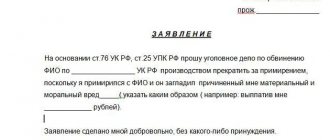When the case of overdue debts comes to the bailiffs, it is clear that since a person did not pay the debt before, then now there is nothing special to pay it with. Therefore, many debtors are interested in whether it is possible to agree with the bailiffs on an installment plan based on the writ of execution.
Installment is the distribution of the debt amount into equal payments. This repayment option is beneficial to the debtor, especially if the monthly payment amount is small and, most importantly, corresponds to earnings. To extend the payment of debt in installments, you need to justify such a request, prove a difficult life situation, or provide other valid reasons.
But the essence of the installment plan for the debtor is that the creditor gives him the opportunity to make payments that are feasible for his budget for quite a long time. Of course, any lender - be it a bank, microfinance organization or an individual - would choose the option for the debtor to return the funds in full and in a single payment. Just to get your money back and forget about the unpleasant situation.
But the debtor is in a difficult situation and cannot return all the money “en masse.” His task is to stretch out the repayment of the debt and protect himself so as not to die of hunger.
Therefore, installment payments are always a search for a compromise between the “want” of the creditor and the “can” of the debtor.
How bailiffs collect debts
The bailiff is obliged to fulfill the requirements specified in the court decision, writ of execution or court order. The FSSP specialist cannot himself determine the amount of debt, or arbitrarily reduce or increase it. There is an exception only for alimony in a fixed amount, when the bailiff is obliged to carry out the indexation himself.
The method of execution depends on the nature and amount of the claims, and on what actions the bailiff decides to take. After the initiation of enforcement proceedings, the bailiff’s work will proceed as follows:
- He makes a decision and gives the debtor 5 days to voluntarily pay the entire amount of the debt;
- if the debtor does not fulfill the requirement in full, then the documents are sent to withhold funds at the place of work;
- as information about the assets and accounts of the defaulter is revealed, the bailiff will seize them;
- In order to ensure the execution of a court decision, an FSSP employee has the right to introduce a number of restrictions and prohibitions (for example, deprive the debtor of a driver’s license or prohibit him from traveling abroad).
Having received documents from the creditor, the FSSP specialist does not have the right to decide on the distribution of the debt into parts. Its task is to fully fulfill the amount of the claim specified in the court decision. The only exceptions are periodic monthly payments, including alimony.
The debtor is interested in repaying the debt as quickly and completely as possible. Therefore, he will control the progress of production, as well as all the actions and decisions of the bailiff. If the FSSP specialist arbitrarily allows the debtor to pay the debt in installments, this will violate the interests of the creditor.
To protect the interests of the creditor, only the court has the right to extend the payment of the debt in installments.
This method of collection, such as sending documents to the debtor’s work for deduction from wages, is somewhat reminiscent of installment payments. The bailiff's order will indicate the amount of deductions from each part of the salary. For most claims, the maximum withholding amount cannot exceed 50%. For some obligations, including alimony debt, up to 70% can be withheld.
Installment procedure
Due to the pandemic, you can only get installments once. Those to whom it is granted must repay their debt monthly in equal installments. The first payment must be made in the month following the one in which the decision to pay in installments was made.
Debtors do not have the right to give guarantees and guarantees. They cannot enter into transactions to encumber or alienate their property. Legal entities are not allowed to pay dividends, income from shares and shares, or distribute profits among the founders.
Select a bank guarantee for free under 44‑FZ and 223‑FZ online
IMPORTANT
If the debtor violates the debt repayment schedule, the installment plan will be cancelled.
After this, enforcement proceedings will take place according to general rules. During the installment period, bailiffs are allowed to seize the debtor's property. They may also impose a ban on registration actions in relation to property, the rights to which are subject to state registration. Other enforcement measures (seizure of property, eviction, etc.) are prohibited.
Are the previously imposed restrictions still in effect? Yes, except for one thing - debt collection using funds in bank accounts. During the installment plan it will be cancelled. As for collectors, they cannot repay debts for which the “coronavirus” installment plan is valid.
Rights of the debtor in FSSP proceedings
Having lost the court, the debtor is obliged to voluntarily comply with the decision. In practice, the collection process can drag on for months and years, especially if the debtor is hiding from the bailiff, does not work, or does not have a stable source of income.
In relation to unscrupulous debtors, the bailiff can take such measures as initiating criminal or administrative cases, arrest and sale of property, imposing a ban on foreign travel, and deprivation of a driver’s license.
In some cases, even a conscientious debtor cannot pay the entire debt at once. The reason for this may be various life circumstances: from job loss and reduced earnings to disability, long-term and serious illness.
To protect his interests, the debtor may take advantage of the following rights:
- ask the bailiff to postpone enforcement actions for up to 10 days;
- go to court to delay or install payments;
- apply for a reduction in the amount of the enforcement fee, if there are such grounds;
- apply for an executive holiday if the debtor qualifies for this program;
- appeal illegal decisions and actions of the FSSP specialist;
- continue appealing the judicial act to higher authorities.
If the debtor's situation falls under the criteria of bankruptcy, you can exercise the right to write off debts. Note that in bankruptcy you can also get debt payment in installments. This is allowed when introducing a restructuring procedure or drawing up a settlement agreement with creditors. But such options do not provide for debt write-off, since the citizen assumes obligations to make voluntary payments to creditors.
Deadlines and amounts
According to the commented law, installment plans are given for the period that the debtor indicated in the application. But there are limitations. For organizations and individual entrepreneurs - for no more than 12 months and no later than August 1, 2021. For pensioners - for no more than 24 months and no later than July 1, 2022.
Limitations on the amount of debt for which installment plans can be obtained:
- for organizations and entrepreneurs - no more than 15 million rubles;
- for pensioners - no more than 1 million rubles.
Is it possible to influence the method and procedure for collection?
In some cases, this is indeed allowed, although the bailiff has the right to determine the list of enforcement actions and interim measures.
In addition to installments and deferment of payments, the debtor can:
- submit documents about your place of work or other source of income so that the bailiff begins withholding in the amount of 50% or 70%;
- submit an application to change the list of seized property (for example, you can ask to transfer jewelry to seizure in order to lift the ban on registration of a car);
- petition for the independent sale of property in order to pay off the claimant.
An installment plan under a writ of execution is a period when you can legally avoid paying debts.
Installment plans can only be obtained through the court. The bailiff has the right to postpone enforcement actions for 10 days. Also, executive holidays are issued through the FSSP, which can only be used by debtor-pensioners.
The listed options can be used as an alternative to deferment or installment plans, or simultaneously. We recommend that you consult with an attorney before taking any action. In the most difficult situations, you can give a lawyer a power of attorney to conduct business.
What debts are covered by the “coronavirus” installment plan?
For companies and individual entrepreneurs, the deferment applies to debts under enforcement proceedings of a property nature (in particular, for the collection of taxes and fees from property). But there are exceptions. According to the commented Law No. 215-FZ, it is impossible to obtain an installment plan in relation to the requirements:
- for compensation for harm to health or in connection with the death of the breadwinner;
- on compensation for moral damage;
- for payment of severance pay;
- on remuneration of persons working (working) under an employment contract;
- on the payment of remuneration to authors of the results of intellectual activity.
For pensioners, loan debts are covered by installments.
How to negotiate with bailiffs: what is possible and what is not
It all depends on what you mean by “agree.” The bailiff does not receive any personal benefit from the collection and cannot be interested in the outcome of the case. If you try to “solve the issue” with money or by promising benefits in favor of the bailiff, you may be prosecuted for giving a bribe.
Pressing for pity is also useless. Each FSSP specialist simultaneously has dozens and hundreds of collection cases in progress. For each of them, it is necessary to carry out painstaking work to find the defaulters and their property, and force the debtors to pay the collector. Instead of useless persuasion or deliberately illegal actions, it is better to use the provisions of Law No. 229-FZ. Read more about this below.
Deferment of execution
Deferment is a period of time during which the debtor may not pay the debtor.
The bailiff can only delay enforcement actions for up to 10 days if such a request is submitted by the debtor. But the FSSP specialist is not obliged to give such a deferment.
For example, during an urgent business trip, the debtor cannot be personally present during the inspection and seizure of property, therefore he has the right to request a postponement of this procedure.
Officially deferring debt payments can only be done through the court that made the decision. When submitting an application, you must indicate valid reasons for postponing the deadline. For example, you can ask for a deferment while you are in hospital if the debtor is undergoing a complex operation. The judge will determine the exact period of deferment based on the evidence presented. In practice, courts rarely grant more than 4-6 months of deferment.
How to get an installment plan for a writ of execution from bailiffs
There is no way to get an installment plan for a writ of execution from the bailiff service.
FSSP specialists simply do not have the right to provide installment plans. All they can do is determine the percentage of withholding when sending documents to the debtor's place of work or to the bank. Therefore, it makes no sense to submit an application and try to pay off the debt through the bailiff.
Installment payment through the court
In any enforcement proceeding there is a very good chance to settle debts through the court. The fact is that the creditor can also receive certain benefits from the installment plan. When considering the application, the judge will check whether the debtor has a real chance of paying certain amounts each month. If there is such an opportunity, the claimant is guaranteed to receive his money, even if not in a lump sum.
We would like to repeat once again - you need to ask the court (and seek to make such a decision) to order payments to pay off the debt in an amount that will be feasible for the debtor. So that with the funds remaining to him he could support his life - and his family.
You can ask the court to install the debt at any stage of the proceedings. The algorithm of actions is as follows:
- you need to prepare evidence confirming the grounds for the installment plan;
- it is necessary to fill out an application, make correct references to evidence and legal norms;
- you need to submit documents to the court that made the decision to collect the debt.
It is advisable to personally take part in the consideration of the application, justify your request and convince that the evidence in your case is extremely serious. The claimant has the right to present his objections, which may influence the court's decision.
If the court agrees with your arguments, it will issue a ruling to grant an installment plan. The document will indicate the period of time during which you can avoid paying your debts. Please note that you can apply for installments several times. At the same time, for each new application you need to re-prove the validity of the reasons why you cannot pay the debtor at once. Automatic extension of the installment plan is not allowed.
What to indicate in an application for installment plan
It depends on the application and the evidence provided whether you will be able to pay off your debts in installments.
The application must indicate:
- your data, information about the claimant;
- details of the FSSP proceedings (number, date of initiation);
- basic information about the court decision and the writ of execution for debt collection;
- a reference to the valid circumstances for which you are asking to install the debt;
- the period of time you request for installments;
- asking the court to release you from payments;
- signature, date.
An application for an installment plan can also be submitted by the bailiff leading the case. In practice, this is extremely rare, since only the debtor is directly interested in changing the terms of collection.
The application must indicate and justify the exact reasons why you are asking for an installment plan. Such circumstances may be:
- severe and/or long-term illness, including hospitalization;
- dismissal from work (for example, due to reduction, liquidation);
- reduction in earnings, if this is not related to your guilty actions;
- disability or temporary incapacity for work;
- the appearance of new dependents in the family (for example, the birth of a child);
- other circumstances confirming the deterioration of the financial situation and the temporary inability to pay debts.
For example, you lived an ordinary life, rented an apartment, but did not have your own corner. A relative of yours died and left you his apartment in his will. This apartment may become your only home.But the inheritance is burdened with debts - for example, before his death the person took out a loan, and also did not pay for utilities - well, he did not have the funds for this. It happens.
And now you enter into an inheritance, and creditors come to you. And they demand to sell the apartment to pay off the debt. Don't agree right away! Ask the court for an installment plan and to establish payments that are feasible for your financial situation.
All of the above circumstances must be supported by documents. For example, this could be the conclusion of a medical and social examination (MSE) or extracts from the register of disability, a certificate from the employment center (CPE) about registration for unemployment, a child’s birth certificate, and other documents.
Settlement agreement with the claimant
This option is allowed by Law No. 229-FZ, but is extremely rare. The claimant is unlikely to agree to formalize a settlement agreement and withdraw documents from the FSSP, even if the debtor guarantees voluntary payments. If you manage to reach an agreement, the settlement agreement must be submitted to the court for approval. And you must not violate its terms.
The bailiff does not have the right to make decisions on such issues himself. If the agreement is approved, the FSSP specialist will complete the case, return the documents to the claimant, and stop enforcement actions.
Executive holidays
This is a special installment option that can be provided by the bailiff himself. Executive holidays were introduced in 2021 as a support measure due to the coronavirus pandemic. Only debtor pensioners can receive an installment plan if their income does not exceed two subsistence minimums.
General conditions for granting holidays:
- Installment plans are provided only for credit debts in the amount of up to 1 million rubles;
- the maximum duration of the vacation is 24 months;
- the debtor-pensioner is obliged to submit an application and payment schedule to the FSSP.
The entire amount of debt in the schedule is divided by the number of months of installments. In most cases, this is less profitable than monthly deductions of 50% from the pension.
For example, with a debt amount of 1 million rubles. and a vacation period of 24 months, the debtor will have to pay more than 41 thousand rubles monthly. Agree that the amount of deductions from your pension will always be much less. Therefore, only a few debtors took advantage of executive holidays.
Who is entitled to installment plans in enforcement proceedings?
In general, any debtor has the right to ask for an installment plan to pay the debt. To do this, you need to submit a corresponding application to the court or other authority that issued the writ of execution. Installment plans can be granted, but they can also be refused (Article 37 of the Law on Enforcement Proceedings).
Order an electronic signature for remote submission of documents to the court Receive in an hour
Order an electronic signature for remote submission of documents to the court
The commented Federal Law of July 20, 2020 No. 215-FZ (hereinafter referred to as Law No. 215-FZ) introduces additional grounds for installment plans. They are related to the pandemic, so refusal is not provided for them. The right to “coronavirus” installment plan is granted to debtors:
1. Organizations and individual entrepreneurs that are SMEs as of March 1, 2021, and classified as the industries most affected by the pandemic (see “The list of OKVED codes has been expanded, which determines the business affected by the coronavirus”). The exception is companies and entrepreneurs to whom, at the request of the creditor, a moratorium on bankruptcy has been applied. They are not entitled to installment plans (see “The government has changed the rules for applying the moratorium on bankruptcy”).
You can check whether an organization is included in the SME register, as well as find out which OKVED codes are assigned to an organization or individual entrepreneur, using the “Kontur.Focus” service.
Connect to the service "Contour.Focus"
2. Pensioners for old age, disability and (or) loss of a breadwinner, if three conditions are met for them. Firstly, they have no other sources of income other than pensions. Secondly, they do not have real estate, except for the only residential premises suitable for permanent residence. Thirdly, the total amount of all types of pension payments is less than 2 minimum wages.
IMPORTANT
“Coronavirus” installment plans are provided based on writs of execution presented to the bailiff service before October 1, 2021. This is stated in Part 4 of Article 1 of Law No. 215-FZ.
Is it possible to reach an agreement with the bailiff and not pay debts?
No you can not. The bailiff has practically no powers to grant official installment plans, except for executive holidays and postponing the action for 10 days. All other issues must be resolved in court, through interaction with the creditor.
When communicating personally with a bailiff or during enforcement actions, the debtor is prohibited from:
- offer a bribe to a FSSP specialist in cash, property, or other benefits;
- use physical force, insult an FSSP employee, threaten him with violence;
- intentionally hide, damage or destroy property that is seized.
All illegal actions will necessarily entail criminal or administrative sanctions. It is better to use legal options for protection in enforcement proceedings, or write off the debt through bankruptcy.
How much should I pay to avoid having my property seized?
Material on the topic
The debtor’s only home - when can he lose it? What is a person’s only home, can he be taken away for debts. How does the court determine that housing is the only one. What kind of real estate cannot be considered the only home. Mortgage for a single residence.
Law No. 229-FZ states that seizure of assets is prohibited for debt amounts up to 3 thousand rubles. If the debt is greater, the FSSP specialist has the right to seize real estate, vehicles, jewelry, and movable property.
Even if you start paying several thousand rubles a month, this will not entail the removal of the arrest. Only full repayment of the debt guarantees that the bailiff will lift the prohibitions and restrictions.
Note that the bailiff can even seize assets that are not subject to sale. For example, the only home of a defaulter cannot be sold unless it is the subject of a mortgage.
But the arrest of such an apartment is allowed, since it is an interim measure. This is done so that the debtor cannot sell the home or re-register it to one of his relatives.
Special rules for individual debtors (except pensioners)
Individuals who have not retired are not entitled to installment plans due to the pandemic. But special rules have been introduced for them. Valid until December 31, 2021 inclusive.
Until this date, bailiffs will not inspect, seize or seize movable property of individual debtors located at the place of residence or stay. An exception is made for transport. Namely - for cars, motorcycles, mopeds, quadricycles, tricycles and self-propelled vehicles. Another exception is made for movable objects, which must be seized by court order.
At the same time, debtors do not have the right to alienate both movable and immovable property. Therefore, bailiffs are allowed to impose a ban on registration actions in relation to objects, the rights to which are subject to state registration.








